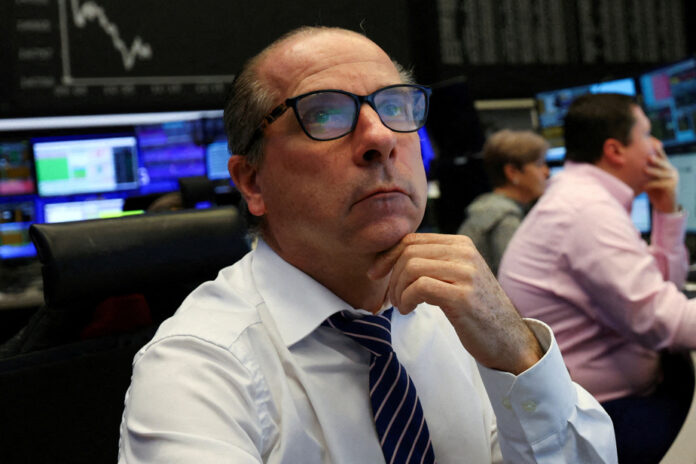(Paris) The announcement of production cuts by several major hydrocarbon-exporting countries sent oil prices skyrocketing on Monday, putting a brake on stocks which rose sharply last week.
The barrel of Brent North Sea, the world reference, rose by 6.38% to 84.98 dollars and that of American WTI by 6.25% to 80.39 dollars around 9:55 a.m. (Eastern time) .
Eight major exporting countries, including Saudi Arabia, Iraq, Algeria, the Emirates, Oman and Kuwait, announced on Sunday a reduction in their production from May, presented as a “precautionary measure” for stabilize the market.
Russia has also announced that it will extend the cut in its crude oil production by 500,000 barrels per day until the end of the year.
The measure was “like a bombshell” for Swissquote Bank analyst Ipek Ozkardeskaya. “Officially, the cartel wants market stability,” but some OPEC countries “just want higher prices,” she said.
“The decline in energy prices, which has helped lower core inflation, could be undermined by the latest output cuts announced over the weekend,” warns Gilles Moëc, chief economist at Axa Investment Managers.
Brent had fallen below $73 a barrel in mid-March, its lowest level in two years, and was struggling to climb back above $80. In April 2022, it was trading above $100 a barrel, boosted by the repercussions of the war in Ukraine.
The alliance, which held a technical meeting via videoconference (JMMC) on Monday, took note of these “voluntary adjustments” in production. In unison with its members, it assured that it was “a precautionary measure aimed at supporting the stability of the oil market”.
This sharp rally barely dampens stock market momentum: Wall Street woke up in disarray after a strong week – the best of the broader S index
In Europe, London gained 0.79%, Milan 0.56%, Paris 0.37%, but Frankfurt fell 0.11%.
Shares of major oil suppliers rose with the surge in prices: in London BP gained 5.25%, Shell 5.61%, in Paris TotalEnergies gained 6.02% and in New York ExxonMobil climbed 5.02% and ConocoPhillips by 8.38%.
Companies related to oil extraction followed the same path such as Vallourec (3.70%) or CGG (7.39%) in Paris.
Conversely, the rise in oil prices is penalizing airline stocks: with Air France-KLM (-1.77%) in Paris, Lufthansa (-0.64%) in Frankfurt, Ryanair (-3, 19%) in Dublin, or United Airlines (-1.66%) and American Airlines (-1.15%) in New York.
The sea freight giant Maersk (-4.53% in Copenhagen) also fell, as did the freight transport group UPS (-0.66% in New York) or the cruise line Carnival (-2.37% in London) .
British cinema group Cineworld announced on Monday a plan to raise $2.26 billion, reduce debt and emerge from bankruptcy proceedings in the United States, but confirmed that its shareholders will suffer heavy losses because “the proposed restructuring provides no recovery” for them. As a result, the stock, already at the abyss, fell another 33%.
The euro was up 0.42% against the dollar at $1.0885, and the pound was up 0.49% at $1.2398 around 9:50 a.m. EST.
Bitcoin was up 0.91% at $28,330.
On the bond market, rates rose slightly in Europe and the United States: the French 10-year loan was trading at an interest rate of 2.82%, the German 10-year at 2.31% and the 10-year US years at 3.49% around 9:50 a.m. EST.















